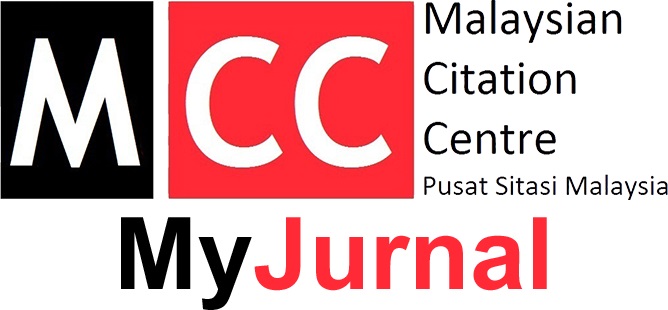ACADEMIC AND NON-ACADEMIC RESPONSIBILITIES AND LENGTH OF SERVICES: DESCRIPTIVE AND CORRELATION ANALYSES
Keywords:
Academicians, Academic Responsibilities, Non-academic Responsibilities, Academic WorkloadsAbstract
The issue of overwork due to numerous responsibilities among academicians is getting a serious attention in educational literature. Academicians have to fulfil many responsibilities simultaneously, including teaching, conducting research, writing, publication, holding administrative posts, involvement in committees and community services, and other professional works which may improve the image of their university. Thus, the objectives of this study are to examine the academicians’ perceptions on their academic and non-academic responsibilities and investigate the relationship between the respondents’ length of service with academic workloads and administrative posts. This study has used self-administered questionnaires, which have been distributed to 391 lecturers from various faculties on the Campus of UiTM Cawangan Terengganu. Results obtained from 119 academicians have indicated that a majority of the respondents have chosen to be in the teaching-and-learning track for their performance-evaluation purpose. This is consistent with the findings that they have spent most of their working hours to fulfil their academic workloads. In addition, the non-academic responsibilities have required them to work beyond office hours in performing their duties. Overall, the findings of this study have shown that most academicians have spent more time on the academic responsibilities. On the other hand, the correlation has revealed that the longer the length of service of the respondents, the more academic workloads will be given and the higher their chances to be appointed as administrators. This has implied that the academicians will be responsible for higher positions and a wide range of tasks as they become more experienced and at a senior level.
References
Ariffin, A. K., Ramli, N. F. L., Abdul, N. A., Husain, H., & Wahab, D. A. (2011). Faculty of engineering and built environment academicians’ actual hours of workload. Procedia-Social and Behavioral Sciences, 18, 595-599.
Awang, Z., Ahmad, J. H., & Zin, N. M. (2010). Modelling job satisfaction and work commitment among academicians: A case of UiTM Kelantan. Journal of Statistical Modeling and Analytics, 1(2), 45-59.
Barkhuizen, N., & Rothmann, S. (2008). Occupational stress of academic staff in South African higher education institutions. South African Journal of Psychology, 38(2), 321-336.
Basarudin, N. A., Yeon, A. L., Yaacob, N., & Rahman, R. A. (2016). Faculty Workload and Employment Benefits in Public Universities. International Review of Management and Marketing, 6(7S), 73-82.
Coate, K., Barnett, R., & Williams, G. (2001). Relationships between teaching and research in higher education in England. Higher education quarterly, 55(2), 158-174.
Gill, R. (2014). Academics, cultural workers and critical labour studies. Journal of Cultural Economy, 7(1), 12-30.
Forgasz, H. J., & Leder, G. C. (2006). Academic life: Monitoring work patterns and daily activities. The Australian Educational Researcher, 33(1), 1-22.
Houston, D., Luana H., Meyer & Shelley P. (2006). Academic Staff Workloads and Job Satisfaction: Expectations and Values in academe. Journal of Higher Education Policy and Management, 28(1), March 2006, 17-30.
Kenny, J., Fluck, A., & Jetson, T. (2012). Placing a value on academic work: The development and implementation of a time-based academic workload model. Australian Universities' Review, 54(2), 50.
Kyvik, S. (2013). Academic Workload and Working Time: Retrospective Perceptions Versus Time‐Series Data. Higher Education Quarterly, 67(1), 2-14.
Leathwood, C., & Read, B. (2013). Research policy and academic performativity: Compliance, contestation and complicity. Studies in Higher Education, 38(8), 1162-1174.
Pereira, M. M (2016). Struggling within and beyond the Performative University: Articulating activism and work in an “academia without walls”. In Women’s Studies International Forum, 54, 100-110
Rahman, M., & Avan, Y. R. (2016). Teaching Workload and Performance: An Empirical Analysis on Selected Private Universities of Bangladesh. European Journal of Social Sciences Studies, 1(1), 71-83
Santos, J. R. A. (1999). Cronbach's alpha: A tool for assessing the reliability of scales. Journal of Extension, 37(2), 1-5.
Schulze, S. (2006). Factors influencing the job satisfaction of academics in higher education. South African journal of higher education, 20(2), 318-335.
Timms, C., Graham, D., & Cottrell, D. (2007). “I just want to teach” Queensland independent school teachers and their workload. Journal of Educational Administration, 45(5), 569-586.
Downloads
Published
Issue
Section
License
Copyright (c) 2019 Journal of Academia

This work is licensed under a Creative Commons Attribution-NonCommercial-NoDerivatives 4.0 International License.











